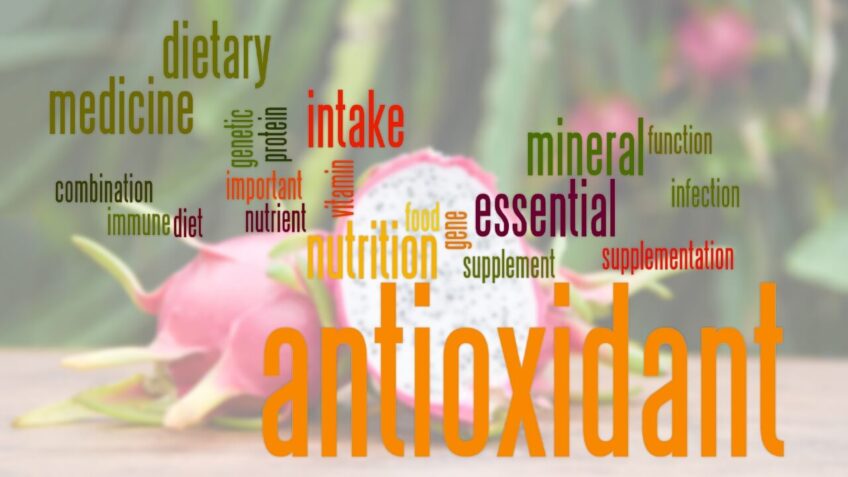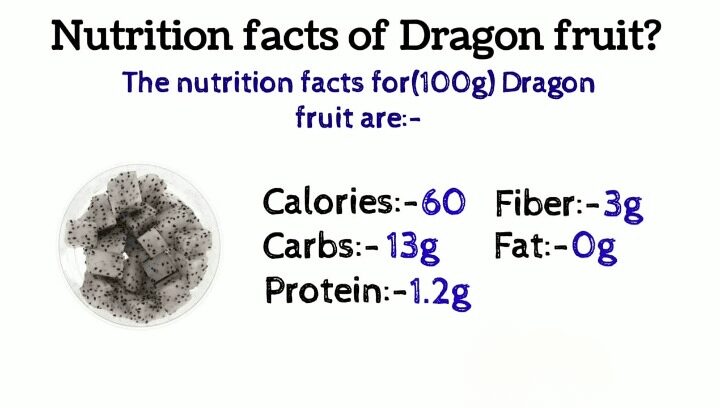Dragon fruit, also known as pitaya, is a tropical fruit that has been gaining popularity in recent years due to its unique appearance and potential health benefits. While dragon fruit is a nutritious and delicious addition to any diet in moderation, eating too many dragon fruits can lead to some side effects. In this blog post, we will explore the major side effects of eating too many dragon fruits and what you can do to prevent them.
Page Contents
- 1 What is Dragon Fruit?
- 2 Side Effects of Eating Too Many Dragon Fruits
- 2.1 1. Too Much Dietary Fiber From Dragon Fruit is Bad for Stomach
- 2.2 2. Too Many Antioxidants Are Bad
- 2.3 3. Allergic Reactions In Some Individuals
- 2.4 4. Dragon fruit May Interfere With Functioning Of Diabetes Medications
- 2.5 5. Eating Dragon Fruit During Pregnancy and Nursing Period: Why This Is Not Good
- 2.6 6. May Cause Hypotension
- 2.7 7. Too Much May Lead To Weight Gain
- 3 How Much Dragon Fruit is Too Much?
- 4 FAQ
- 5 Conclusion
What is Dragon Fruit?
Before diving into the side effects of eating too many dragon fruits, let’s take a closer look at what this tropical fruit is and what makes it so special. Dragon fruit comes from the cactus species Hylocereus and is native to Central and South America. It has a vibrant pink or yellow exterior with greenish scales and a white or pink interior with black seeds. Dragon fruit is a good source of nutrients, including vitamin C, fiber, and antioxidants.
Side Effects of Eating Too Many Dragon Fruits
1. Too Much Dietary Fiber From Dragon Fruit is Bad for Stomach
Consuming too much dietary fiber can lead to several stomach problems, such as bloating, gas, diarrhea, and constipation. This is because dietary fiber absorbs water and swells in the stomach, making you feel full and reducing hunger. While this can be beneficial for weight loss, consuming too much fiber can cause discomfort and digestive problems.
Additionally, consuming too much dietary fiber can interfere with the absorption of nutrients from other foods. This can lead to deficiencies in essential vitamins and minerals, which can cause several health problems.
While dragon fruit is a great source of dietary fiber, consuming too much of it can lead to several stomach problems. Some of the most common problems associated with consuming too much dietary fiber include:
Bloating
Excessive dietary fiber can cause the stomach to bloat, leading to discomfort and pain.
Gas
The excess fiber in dragon fruit can ferment in the gut, leading to the production of gas.
Diarrhea
Consuming too much fiber can lead to loose stools and diarrhea.
Constipation
In some cases, excessive fiber can lead to constipation.
2. Too Many Antioxidants Are Bad

Antioxidants are compounds that protect our cells from damage caused by free radicals. Free radicals are unstable molecules that can cause damage to our cells and contribute to the development of various health conditions. Antioxidants neutralize free radicals by donating an electron to them, which stabilizes them and prevents them from causing further damage.
Dragon fruit is rich in antioxidants, including vitamin C, carotenoids, and flavonoids. These antioxidants help to protect our cells from damage and reduce the risk of chronic diseases such as cancer, heart disease, and diabetes.
Too Many Is Too Bad
While antioxidants are important for our health, it is also important to remember that too much of a good thing can be harmful. In fact, research suggests that excessive consumption of antioxidants can have negative effects on the body.
One of the main concerns with consuming too many antioxidants is that it can disrupt the delicate balance of free radicals and antioxidants in the body. When there are too many antioxidants, they can actually begin to act as pro-oxidants, causing damage to our cells and contributing to the development of chronic diseases.
Another concern is that excessive consumption of antioxidants can interfere with the body’s natural defense mechanisms. For example, research suggests that high doses of vitamin C can interfere with the body’s ability to absorb and utilize other important nutrients such as vitamin B12 and iron.
The bottom line is that while antioxidants are important for our health, it is important to consume them in moderation. Consuming large amounts of antioxidants through supplements or excessive consumption of antioxidant-rich foods like dragon fruit can have negative effects on the body.
3. Allergic Reactions In Some Individuals

Consuming too much may lead to some adverse effects, including allergic reactions.
Allergic reactions occur when the immune system identifies certain substances in food as harmful and launches an attack against them. The symptoms of an allergic reaction can range from mild to severe and may include skin rashes, itching, swelling, difficulty breathing, and even anaphylaxis, which is a life-threatening condition.
Dragon fruit contains several proteins, including betalains, which may trigger an allergic reaction in some individuals. Allergic reactions are relatively rare, but they have been reported in some cases. If you have a known allergy to other fruits, such as kiwi or pineapple, you may be at a higher risk of developing an allergy to dragon fruit.
Symptoms of an allergic reaction to dragon fruit typically occur within a few minutes to a few hours after consumption. If you experience any symptoms, it is essential to seek medical attention immediately, especially if the symptoms are severe.
To avoid allergic reactions, it is essential to consume it in moderation and monitor your body’s response. If you are allergic to dragon fruit or any of its components, it is best to avoid it altogether.
4. Dragon fruit May Interfere With Functioning Of Diabetes Medications
Recent studies suggest that consuming dragon fruit may interfere with the functioning of diabetes medications, posing a potential risk to individuals with diabetes.
Diabetes is a chronic condition characterized by high blood sugar levels, which can lead to various complications such as heart disease, nerve damage, and kidney disease. Diabetes medications are designed to help regulate blood sugar levels, and they work by either increasing insulin production or improving the body’s sensitivity to insulin.
Dragon fruit, on the other hand, contains natural compounds that may affect blood sugar levels and the effectiveness of diabetes medications. Studies have shown that consuming it may lower blood sugar levels in people with diabetes, which could be beneficial in some cases. However, this also means that it may interfere with the action of diabetes medications, leading to potentially dangerous fluctuations in blood sugar levels.
One study conducted in 2016 found that consuming dragon fruit juice decreased the effectiveness of the diabetes medication metformin in controlling blood sugar levels. Metformin is a commonly prescribed medication for type 2 diabetes, and it works by reducing glucose production in the liver and improving insulin sensitivity. The study showed that when dragon fruit juice was consumed with metformin, the medication’s ability to lower blood sugar levels was significantly reduced.
Another study published in 2019 investigated the effects of dragon fruit on the action of the diabetes medication gliclazide. Gliclazide is a medication that stimulates insulin production in the pancreas, and it is often prescribed for people with type 2 diabetes who cannot control their blood sugar levels through diet and exercise alone. The study found that consuming dragon fruit significantly decreased the effectiveness of gliclazide, leading to higher blood sugar levels in participants with diabetes.
It is important to note that these studies were conducted on a small number of participants, and more research is needed to full understand the potential interactions between dragon fruit and diabetes medications. However, the results suggest that people with diabetes should exercise caution when consuming and should consult with their healthcare provider before adding it to their diet.
5. Eating Dragon Fruit During Pregnancy and Nursing Period: Why This Is Not Good
Risk of Allergic Reactions
One of the main reasons why pregnant and nursing women should avoid consuming dragon fruit is the risk of allergic reactions. Although rare, some people may experience allergic reactions after consuming dragon fruit. The symptoms of an allergic reaction may include itching, swelling, rashes, and difficulty breathing. In severe cases, an allergic reaction can even lead to anaphylaxis, a life-threatening condition.
Furthermore, pregnant and nursing women should be extra cautious when it comes to consuming foods that may trigger allergic reactions. This is because an allergic reaction can affect not only the mother but also the unborn baby or the nursing baby.
Risk of Gestational Diabetes
Gestational diabetes is a type of diabetes that occurs during pregnancy. It is caused by the hormones produced by the placenta that can make it harder for the mother’s body to use insulin effectively. If left uncontrolled, gestational diabetes can lead to various complications for both the mother and the baby.
Dragon fruit is a sweet fruit that contains natural sugars. Consuming too much dragon fruit during pregnancy can increase the risk of developing gestational diabetes. Women who have a family history of diabetes or who are already at risk for gestational diabetes should be particularly cautious when it comes to consuming sweet fruits.
Interference with Iron Absorption
Iron is an important nutrient that is essential for the formation of red blood cells. During pregnancy and nursing periods, the demand for iron increases significantly. Consuming foods that interfere with iron absorption can lead to anemia, a condition that is characterized by a low level of red blood cells in the body.
It contains high levels of vitamin C, which can interfere with the absorption of iron. Vitamin C enhances the absorption of non-heme iron, which is the type of iron found in plant-based foods. However, excessive intake of vitamin C can also inhibit the absorption of heme iron, which is the type of iron found in animal-based foods.
6. May Cause Hypotension
While this fruit is generally considered safe and healthy, recent studies suggest that consuming dragon fruit may cause hypotension, or low blood pressure, in some individuals.
Hypotension is a condition characterized by abnormally low blood pressure, which can lead to symptoms such as dizziness, lightheadedness, fainting, and fatigue. In severe cases, hypotension can be life-threatening, particularly in older adults or people with underlying health conditions.
Dragon fruit contains natural compounds that may lower blood pressure, including flavonoids, betacyanins, and carotenoids. These compounds have been found to have antioxidant and anti-inflammatory effects, which may help protect against various diseases, including cardiovascular disease.
However, while consuming dragon fruit may be beneficial for some individuals, it may cause hypotension in others, particularly those who are already taking medications for high blood pressure or have underlying health conditions that affect blood pressure regulation.
A study published in 2017 investigated the effects of dragon fruit on blood pressure in individuals with hypertension, or high blood pressure. The study found that consuming dragon fruit for six weeks significantly decreased systolic blood pressure (the top number in a blood pressure reading) compared to a control group. While this may be beneficial for individuals with hypertension, it also suggests that dragon fruit may lower blood pressure in healthy individuals, potentially causing hypotension.
Another study published in 2019 investigated the effects on blood pressure in healthy adults. The study found that consuming dragon fruit juice for two weeks significantly decreased systolic and diastolic blood pressure (the bottom number in a blood pressure reading) compared to a placebo group. While this study suggests that dragon fruit may have beneficial effects on blood pressure in healthy individuals, it also raises concerns about the potential for hypotension in some individuals.
It is important to note that these studies were conducted on a small number of participants, and more research is needed to fully understand the potential effects of dragon fruit on blood pressure. However, the results suggest that individuals with low blood pressure or those taking medications for high blood pressure should exercise caution when consuming dragon fruit and should consult with their healthcare provider before adding it to their diet.
7. Too Much May Lead To Weight Gain

While this fruit is generally considered healthy and low in calories, consuming too much dragon fruit may lead to weight gain in some individuals.
Weight gain occurs when there is an imbalance between the number of calories consumed and the number of calories burned. Dragon fruit is low in calories and high in fiber, which can help promote feelings of fullness and prevent overeating. However, consuming too much dragon fruit may still lead to an excess of calories, particularly if it is consumed in addition to other high-calorie foods and beverages.
Dragon fruit contains natural sugars, including fructose and glucose, which can contribute to calorie intake. One cup of dragon fruit contains approximately 140 calories and 29 grams of carbohydrates, including 4 grams of fiber and 21 grams of sugar. While this may not seem like a significant amount, consuming multiple servings or adding it to high-calorie smoothies or desserts can quickly add up in terms of calories and sugar
In addition to its calorie content, dragon fruit may also lead to weight gain if it is consumed in place of other healthy foods. For example, if an individual consumes dragon fruit instead of vegetables, lean proteins, and whole grains, they may not be getting enough nutrients to support a healthy weight.
It is important to note that weight gain from consuming dragon fruit is not inevitable and that moderation is key. Consuming dragon fruit in small amounts as part of a balanced diet is unlikely to lead to weight gain, particularly when combined with regular exercise and healthy lifestyle habits.
How Much Dragon Fruit is Too Much?
The amount of dragon fruit that is considered too much will vary depending on several factors, including age, gender, and overall health status. In general, it is recommended that adults consume 2-3 servings of fruit per day as part of a balanced diet.
If you are consuming it as part of your daily fruit intake, it is unlikely that you will consume too many antioxidants. However, if you are consuming large amounts of dragon fruit or taking antioxidant supplements, it is important to speak with your healthcare provider to determine if you are consuming a safe and appropriate amount.
FAQ

Does Dragon Fruit Increase Sperm?
There is currently no scientific evidence to suggest that dragon fruit, can increase sperm production or improve male fertility.
While it is a nutritious fruit that contains vitamins, minerals, and antioxidants that may benefit overall health, there is no research to support the claim that it can increase sperm count or motility.
Does Dragon Fruit Make You Sleepy?
It is fruit that contains vitamins, minerals, and antioxidants that may offer several health benefits. However, there is no scientific evidence to suggest that dragon fruit can make you sleepy.
Is Dragon Fruit Good for Eyes?
This food contains several nutrients that are beneficial for eye health. These include:
Vitamin C
Dragon fruit is a rich source of vitamin C, which is a powerful antioxidant that can help protect the eyes from oxidative stress and reduce the risk of age-related macular degeneration (AMD) and cataracts.
Beta-carotene
It contains beta-carotene, which is converted into vitamin A in the body. Vitamin A is essential for maintaining healthy vision and may help reduce the risk of night blindness and other eye disorders.
Lycopene
Dragon fruit also contains lycopene, which is another antioxidant that may help protect the eyes from damage caused by free radicals.
Flavonoids
This fruit contains flavonoids, which are plant compounds that may help improve blood flow to the eyes and reduce the risk of AMD.
Is Dragon Fruit Good for Skin?
It is rich in nutrients that may benefit the health of your skin. Here are some of the ways dragon fruit can be good for your skin:
Rich in antioxidants
Dragon fruit contains a variety of antioxidants that can help protect your skin from damage caused by free radicals. Free radicals are unstable molecules that can damage skin cells and contribute to premature aging, such as wrinkles and fine lines.
High in vitamin C
This fruit is a good source of vitamin C, which is an antioxidant that helps to stimulate collagen production. Collagen is a protein that gives your skin its elasticity and helps to reduce the appearance of fine lines and wrinkles.
Contains vitamin E
It is also a good source of vitamin E, which is a nutrient that helps to moisturize and nourish the skin. Vitamin E also helps to protect the skin from UV damage and can help to reduce the appearance of scars.
Hydrating properties
This fruit has a high water content, which can help to hydrate the skin and improve its texture.
Anti-inflammatory properties
Some studies suggest that dragon fruit may have anti-inflammatory properties, which can help to reduce redness and swelling associated with acne and other skin conditions.
Conclusion
Dragon fruit is a delicious and nutritious fruit that can be a healthy addition to your diet in moderation. However, eating too many can lead to some side effects, such as diarrhea, stomach upset, allergic reactions, and interference with medications.
To prevent these side effects, it is important to consume in moderation, monitor your symptoms, and talk to your doctor if you are taking any medications.
If you like this post read more here about side effects of eating too many blueberries.
Theodore is a prolific author at Fischer Institute, known for his insightful articles on health and nutrition. His expertise spans a wide range of topics, from the benefits of traditional foods to the latest in health trends, always aiming to educate and empower readers towards better wellbeing.
Also Read:
- Major Side Effects of Eating Too Many Mung Bean…
- Major Side Effects Of Eating Too Many Pistachio…
- Major Side Effects OF Eating Too Many Blueberries -…
- Major Side Effects Of Eating Too Many Cashews:…
- 8 Major Side Effects Of Eating Too Much Spinach: The…
- Major Eggplant Side Effects - Take Care of Your Health















